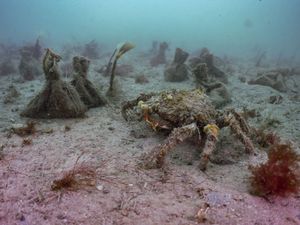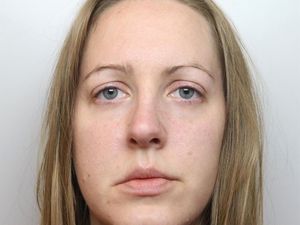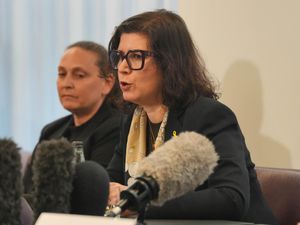Thousands of seed bags planted in England’s largest seagrass planting effort
Seagrass meadows provide homes for young fish and protected creatures like seahorses and stalked jellyfish.

Work on England’s largest seagrass planting effort will draw to a close on Wednesday as the last of thousands of seed bags are placed in Plymouth Sound National Marine Park.
Experts estimate the UK may have lost at least 44% of its seagrasses since 1936, 39% since the 1980s, and that the losses over longer time spans may be as high as 92%.
Seagrass meadows provide homes for young fish and protected creatures like seahorses and stalked jellyfish.
The plant also has an integral role in stabilising the seabed, cleaning the surrounding seawater and capturing and storing significant amounts of carbon.
The last of 16,000 seagrass seed bags and 2,200 seedling bags will be planted in Plymouth as part of a four-year project aiming to plant a total of eight hectares of seagrass meadows.
Four hectares will be in Plymouth Sound and four hectares in the Solent Maritime Special Area of Conservation.
The LIFE Recreation ReMEDIES project being led by Natural England, with the planting being carried out by project partner the Ocean Conservation Trust.
Mark Parry, development officer at Ocean Conservation Trust, said: “Our first successful planting effort is only possible because of all the hard work of the partners in the LIFE ReMEDIES project.
“These events have taken over 12 months of planning and include a combination of volunteers who have visited the National Marine Aquarium creating our planting units and our dive volunteers.
“This truly is a community effort.
“It is incredible to see the support from local communities supporting habitats for our animal coastal communities, a very proud moment.”
Seagrass is delicate and can be damaged by activities such as the anchoring, mooring and launching of leisure boats, as well as other shore- and water-based activities.
Therefore, as well as planting new seagrass meadows, the project is working to protect existing ones by helping recreational users to minimise impacts on these sensitive habitats.
Natural England and ReMEDIES partners plan to extend the benefits of this work beyond the UK to assist with international marine recovery efforts.
Techniques and evidence gathered will be captured and shared with marine conservation organisations across Europe to allow them to learn from and replicate the work.
Paul Barnard, service director for strategic planning and infrastructure at Plymouth City Council, said: “We’re really pleased to be a partner in this exciting ReMEDIES initiative in Plymouth Sound, which not only supports our ambition to become a National Marine Park but also marks an important action in our Climate Emergency Action Plan.
“By working together, we can raise awareness about the importance of seagrass, reduce the impact on these sensitive habitats and encourage both local communities and visitors to help look after our ‘blue’ environment for the future.”
ReMEDIES is funded by the EU LIFE programme and led by Natural England in partnership with Ocean Conservation Trust (OCT), Marine Conservation Society, Royal Yachting Association and Plymouth City Council/Tamar Estuaries Consultative Forum.





